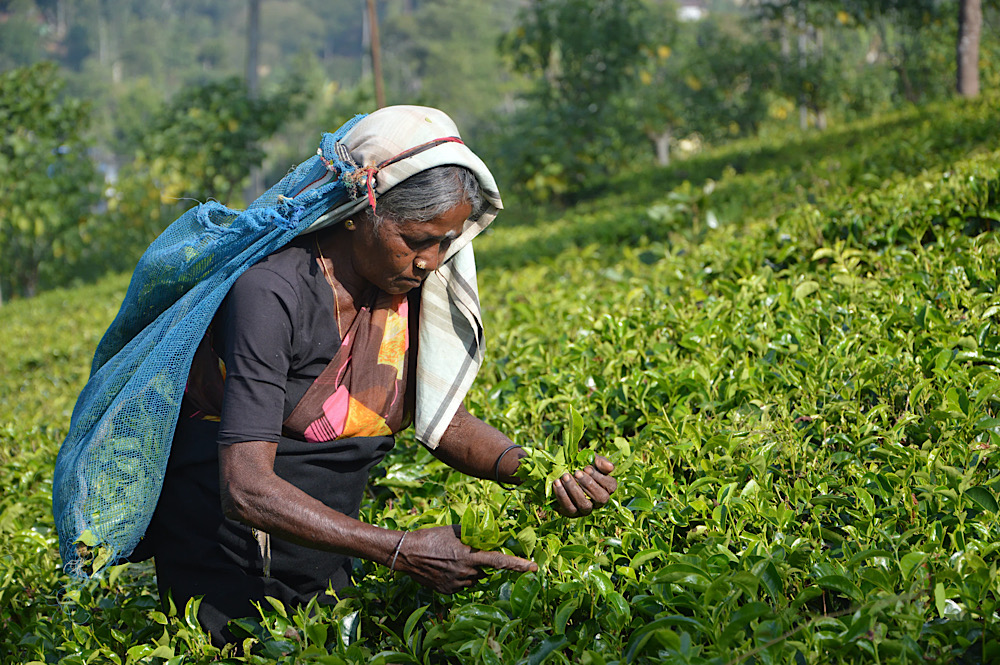Drought in Sri Lanka devastates farmland and fuels poaching
At least 13 districts involved in the country and 50,000 acres of fields were destroyed, especially rice fields. Fears of a surge in prices, many are already looking for makeshift foods to feed themselves. The government rejects the hypothesis of compensation and is waiting for the October rains. Traffickers poison wells to resell captured and killed animals.
Colombo (AsiaNews) - Due to the recent drought, at least 13 districts of the country have been affected by a serious water shortage and 50 thousand acres of agricultural land, including rice paddies and cultivated fields, have been destroyed. As rice production declines, a shortage of a staple of the national diet is expected in the future, while prices are set to rise sharply.
To date, it does not seem necessary to start an urgent import of rice; however the government could be forced to do so in the coming months, while producers will take advantage of the limited reserves of the Paddy Paddy Marketing Board for a general increase in prices that will affect the final consumer, already in difficulty due to the economic crisis.
According to senior officials of the Ministry of Agriculture "the estimates of damage to crops are increasing by the day, as crops are destroyed due to heat and water shortages". At the moment, explain the leaders, "we are not facing a shortage of food, since stocks held by millers and farmers are sufficient to feed the country, but we could be forced to import rice by the end of the year".
As India and China have stopped exporting rice, they warn, “we will be facing a serious problem. There are currently no plans to do so. The government must take steps to solve the problem."
Interviewed by AsiaNews the economist Senarath Manatunga explains that "farmers have repeatedly asked for compensation for damaged crops. Many of them farmed after getting bank loans and are unable to pay them or manage household expenses. Recently, in several areas, farmers have set fire to damaged crops, although this does not solve the problem".
However, Agriculture Minister Mahinda Amaraweera has already advised that no compensation will be given to farmers who set fire to rice paddies, straw and withered crops. Faced with the choice of farmers to set fire to crops to receive compensation, the government let it be known that "no compensation will be paid for land set on fire".
Also targeted are those responsible who have not been able to assess, and respond in time, to the critical situation due to the drought. The Department of Meteorology has forecast heavy rains between October and November, hence the "advice" to farmers and agricultural entrepreneurs to focus on the next season.
At present, residents of Anuradhapura and Polonnaruwa districts dig and extract lotus roots from dried up reservoirs to feed themselves, as available rice supplies are too expensive. Meanwhile, drinking water is scarce in several areas.
The Irrigation Department has warned that after releasing water for 900,000 acres of rice paddies next week, the situation will worsen in the future. Levels in major reservoirs will remain above 20%, while smaller reservoirs in areas such as Kurunegala will drop below 10%. The Disaster Management Center (DMC) has provided 140 portable tanks of potable water to those who depend on tanks.
Nishantha Kahandgama and Upul Mediwaka, officials in the wildlife sector, report a further problem linked to the water crisis: "Poachers - they explain - are exploiting the prevailing drought to kill animals by poisoning water holes" and traffic them, as emerges from evidence found in Yala National Park, the second largest park on the island and overlooking the Indian Ocean.
“Carcasses of animals killed by poisoning have been found and we need to find the suspects. These poachers - they conclude - have sent the poisoned meat to many areas” and this could represent “a threat to the health or life of those who consume it. The poachers mostly target local tourists and we ask people living in neighboring villages to inform us if they know of anyone involved in the racketeering."
24/01/2007
12/02/2024 13:34
22/01/2024 18:20







.png)










